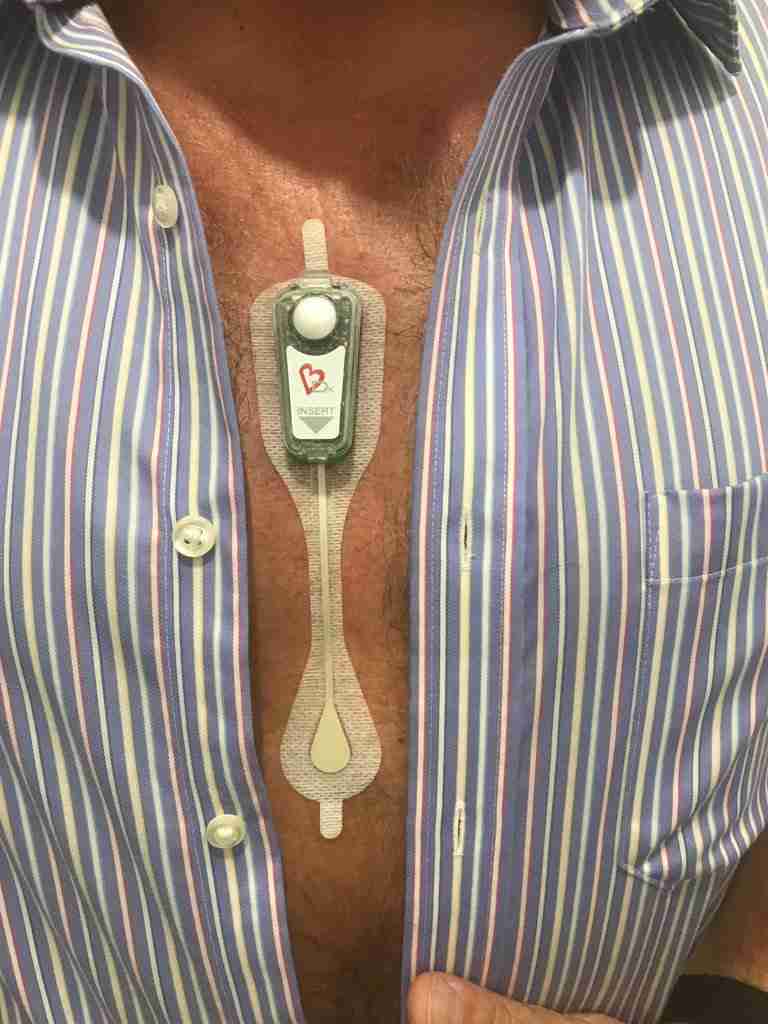The use of AI agents for lifestyle behaviour change in individuals with coronary heart disease (CHD) May 1, 2025 - Oct 31, 2025
Heart disease is a major health issue in the UK and worldwide. Coronary heart disease (CHD), caused by cholesterol buildup in the arteries, is one of the leading causes of death. Many people in the UK live with risk factors like physical inactivity,...
Read More about The use of AI agents for lifestyle behaviour change in individuals with coronary heart disease (CHD).
Prof Lis Neubeck's Projects (14)
Creating a national linked dataset to understand rehabilitation delivery in Scotland Sep 1, 2024 - May 31, 2026
Despite recent advances in the use of digital health interventions to support people with cardiovascular disease, dissemination is uneven, and there are notable gaps in uptake. Our recent research projects in digital health include a nationwide blood...
Read More about Creating a national linked dataset to understand rehabilitation delivery in Scotland.
Developing remote exercise support and rehabilitation for patients after spontaneous coronary artery dissection - a feasibility study Dec 1, 2024 - Nov 30, 2026
Spontaneous coronary artery dissection (SCAD) is increasingly recognised as an important cause of myocardial infarction (MI), particularly among younger women and has been linked participating in strenuous physical activity (PA). This can lead to psy...
Read More about Developing remote exercise support and rehabilitation for patients after spontaneous coronary artery dissection - a feasibility study.
Co-design of a clinical decision support tool for use in patients with acute chest pain in the Emergency Department Aug 1, 2022 - Apr 30, 2023
Our objective is to reduce 30-day reattendance by a fifth in patients presenting with acute chest pain to the Emergency Room using artificial intelligence tools to augment clinical decisions. To achieve this, we will provide diagnostic probabilities...
Read More about Co-design of a clinical decision support tool for use in patients with acute chest pain in the Emergency Department.
Co-creation of a digital resource to build students skills in ASsessing cardiovascular risk, MOtivating change and SUStaining a healthier lifestyle in themselves and others Sep 1, 2022 - Aug 31, 2024
Identifying cardiovascular risk factors (i.e., hypercholesterolaemia, smoking, obesity, and physical inactivity) and establishing cardiovascular prevention strategies are important approaches towards reducing the global health burden of cardiovascula...
Read More about Co-creation of a digital resource to build students skills in ASsessing cardiovascular risk, MOtivating change and SUStaining a healthier lifestyle in themselves and others.
Qualitative study to explore the acceptability of an accelerated syncope strategy to patients and staff involved in the ASPIRED trial Jun 1, 2022 - Jan 14, 2024
The BHF funded ASPIRED study aims to determine whether immediate, enhanced (14-day) ambulatory ECG monitoring decreases the number of episodes of syncope at one year compared to standard care monitoring in ED patients presenting acutely with unexplai...
Read More about Qualitative study to explore the acceptability of an accelerated syncope strategy to patients and staff involved in the ASPIRED trial.

Recovery from Spontaneous Coronary Artery Dissection Jan 1, 2023 - Apr 1, 2025
Spontaneous coronary artery dissection (SCAD) is increasingly recognised as an important cause of myocardial infarction (MI). Despite this, there are no recovery programmes tailored for SCAD survivors, who are mainly female, and typically younger tha...
Read More about Recovery from Spontaneous Coronary Artery Dissection.
Assessing the implementation of the Public Health Scotland Physical Activity Referral Standards: A process evaluation Nov 1, 2022 - Nov 30, 2025
Physical inactivity is a major public health problem and increasing population physical activity levels is a Scottish Government priority. In Scotland, 49% of men and 58% of women were not active enough to benefit their health in 2020, increasing the...
Read More about Assessing the implementation of the Public Health Scotland Physical Activity Referral Standards: A process evaluation.
ACS discharge and medication education using Avatar technologies to prevent 30-day readmission. Apr 1, 2020 - Mar 31, 2022
Australian data report that up to 1 in 5 acute coronary syndrome (ACS) patients are readmitted within 30-days.[1] It is estimated that between 2017-18, ACS events cost Australia $1,930 million.[2] Internationally, Hospital Readmissions Reduction Prog...
Read More about ACS discharge and medication education using Avatar technologies to prevent 30-day readmission..
Who benefits from cardiovascular risk reduction programmes? Building a Scottish observatory to measure the impact of blood pressure (BP) telemonitoring and future cardiovascular risk reduction interventions Sep 1, 2020 - Sep 30, 2024
The British Heart Foundation is partnering the Scottish Government in supporting the roll out of an evidence based BP telemonitoring initiative (scale up BP) in order to facilitate increased detection and improved management of hypertension and subse...
Read More about Who benefits from cardiovascular risk reduction programmes? Building a Scottish observatory to measure the impact of blood pressure (BP) telemonitoring and future cardiovascular risk reduction interventions.

Increasing medication adherence among adults with atrial fibrillation: A Medical Research Council complex intervention framework development and feasibility study. Jul 1, 2019 - Mar 31, 2023
Atrial fibrillation (AF) is a common abnormal heart rhythm affecting more than 1-million people in Scotland. People with AF are five-times more likely to have a stroke and twice as likely to die, compared to those without AF. Strokes caused by AF are...
Read More about Increasing medication adherence among adults with atrial fibrillation: A Medical Research Council complex intervention framework development and feasibility study..
Cardiovascular disparities among young adults in Scotland: Linking the Scottish Longitudinal Study from 1991 to 2011 Jul 1, 2018 - Dec 31, 2019
In this study, we aim to examine:
1. Trends in the prevalence of hospital admissions for CHD in young adults and compare them with older adults between 1991 to 2011;
2. Trend in the annual rates of major CHD events (non-fatal MI and CHD death) in...
Read More about Cardiovascular disparities among young adults in Scotland: Linking the Scottish Longitudinal Study from 1991 to 2011.

Secondary detection of atrial fibrillation Jan 1, 2018 - Oct 31, 2019
Secondary detection of atrial fibrillation post stroke.

Low uptake of physical activity programmes by men; why don’t they go? Sep 1, 2016 - Jul 31, 2022
This nurse-led project will be an interdisciplinary collaboration between leading researchers working in Edinburgh Napier University, in the University of Sydney, and Flinders University, Adelaide Australia, nurses in NHS Fife and allied health profe...
Read More about Low uptake of physical activity programmes by men; why don’t they go?.
